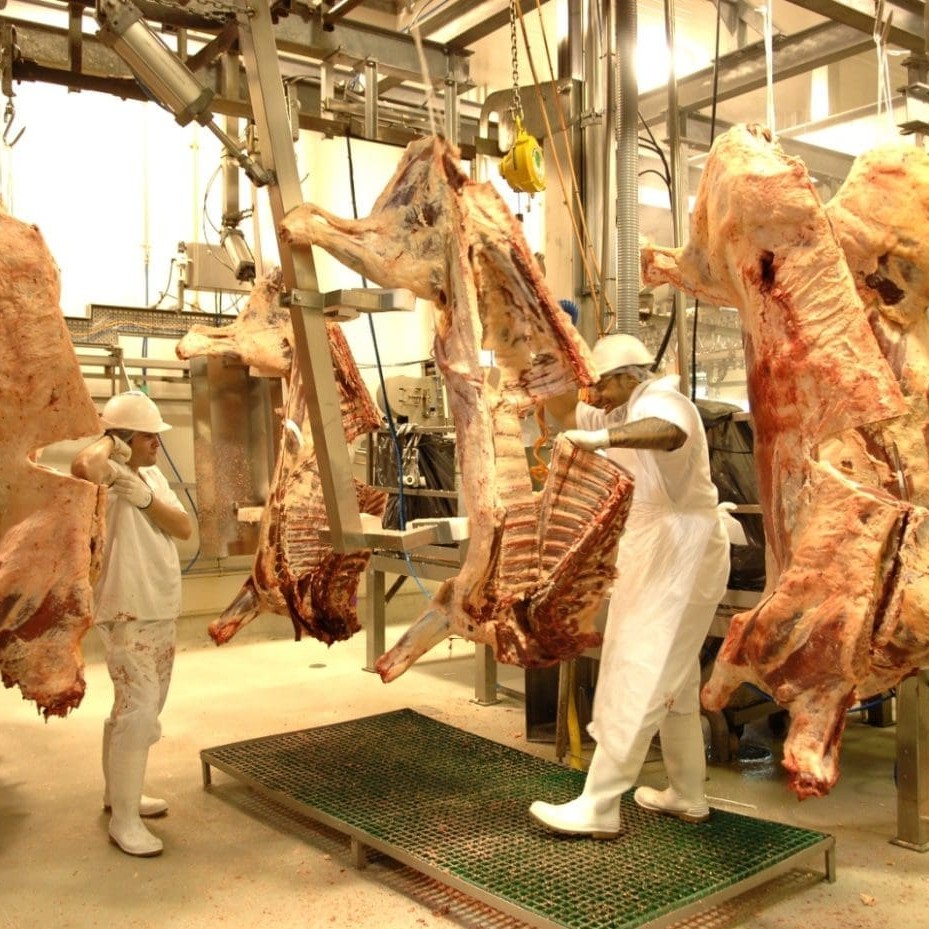 Larger meat processors have scored a big win with the Federal Government over the added cost burden associated with the controversial carbon tax, securing a Government commitment to higher levels of funding support for carbon mitigation projects.
Larger meat processors have scored a big win with the Federal Government over the added cost burden associated with the controversial carbon tax, securing a Government commitment to higher levels of funding support for carbon mitigation projects.
Federal minister for climate change and energy efficiency, Greg Combet, announced today that larger processors directly exposed to the carbon tax can now access dollar-for-dollar grants under the Government’s $1 billion Clean Technology Investment Programs.
Previously the Government had committed only to support such projects to the tune of $1 for every $2 or $3 spent by processors, depending on a number of variables.
The change in policy could be worth as much as $27 million in cost savings to the processing sector’s larger members, an industry stakeholder suggested yesterday.
The result is a significant victory for the Australian Meat Processor Corporation and the Australian Meat Industry Council and the bodies’ constituent members, following a lengthy campaign over the inequity behind the tax and the previous low level of government support for mitigation work.
Processors argued that under previous lower-level subsidy arrangements, the rate of return on investment on carbon mitigation projects would be so poor that few, if any stakeholders would engage in the program.
The AMPC yesterday commended the Government action in recognising the impacts of the climate change policy on the processing industry.
The changes made to the Clean Technology Investment Program (CTIP) funding arrangements would assist industry in its ability be proactive in addressing the challenges and opportunities in a low carbon economy, AMPC’s chief executive Michelle Edge said.
In announcing the changes to the guidelines, the minister for climate change and energy efficiency, Greg Combet, said the new funding ratio would increase support for manufacturers to invest in equipment and technology to reduce their power bills and emissions.
“Capital investment in low-emission and energy-efficient technologies will help these Australian businesses to become more competitive and sustainable, in the international marketplace,” Mr Combet said.
The new funding ratio would also be available retrospectively to businesses that met the criteria, and had already lodged an application under the CTIP.
For businesses not liable under the direct carbon pricing mechanism (less than 25,000t annual carbon emissions threshold), the existing grant funding ratios will continue to apply. Meat processors with turnover of less than $100m seeking a grant under $500,000 would continue to receive dollar-for-dollar support.
AMIC’s climate change committee chairman, Tom Maguire said Australia was the world’s largest red meat exporter, and competed fiercely with other meat trade majors like the US, Brazil, Argentina, Canada and NZ in a price-sensitive world commodity market.
The red meat industry was Australia’s largest food manufacturer and the nation’s largest food exporter. Each year it generates $16 billion in GDP, $7.6b in household income, $5.8b in exports and 148,000 jobs when flow-on effects are included.
“On this basis, the red meat processing industry recognises that improving industry sustainability and productivity will be the key to our future. This change in policy by government will help us to achieve that,” Mr Maguire said.
The red meat processing industry remained heavily committed to a sustainable future and proactively participating in a low carbon economy, he said.
In a second Government decision, the processing sector was successful recently in securing a grant for $583,000 for education activity within in industry on through-chain options available to reduce emissions, through the Government’s Energy Information Grant Program.
AMPC’s Michelle Edge said the industry had been proactive in regular dialogue with Government on the research, development and extension activities required to initiate technology and practice change to reduce emissions.
“In developing the Red Meat Processing Climate Change Strategy, industry has been working to establish approaches that will see business reducing their emissions effectively through new and innovative technology, practice change and process improvements,” she said.
9 projects ready for submission
This week’s change of policy by the Federal Government followed an RD&E Strategy and Cabinet submission prepared by AMPC arguing for an enhanced funding ratio on behalf of processors.
The submission qualified the economic pressures, technological needs and practice change requirements that directly-liable processors would have to undertake to avoid the costs of the CPM.
It also highlighted the various technical solutions that plants would be likely to undertake, including digesters, bio-filters and CALs, as well as the pressure on industry costs and mitigation options.
The submission suggested that it was likely that $50 million would be required to be invested by those plants directly impacted by costs under the CPM, and that leverage required further Government examination for the processing sector.
There are currently nine submissions, each representing a different meat processing site, to be included in the industry’s first package application under arrangements with Government and AusIndustry. A further five plant submissions are likely to be presented as soon as submissions are completed.
It is understood approvals could be considered as soon as the next meetings for AusIndustry on September 4 and October 5.
